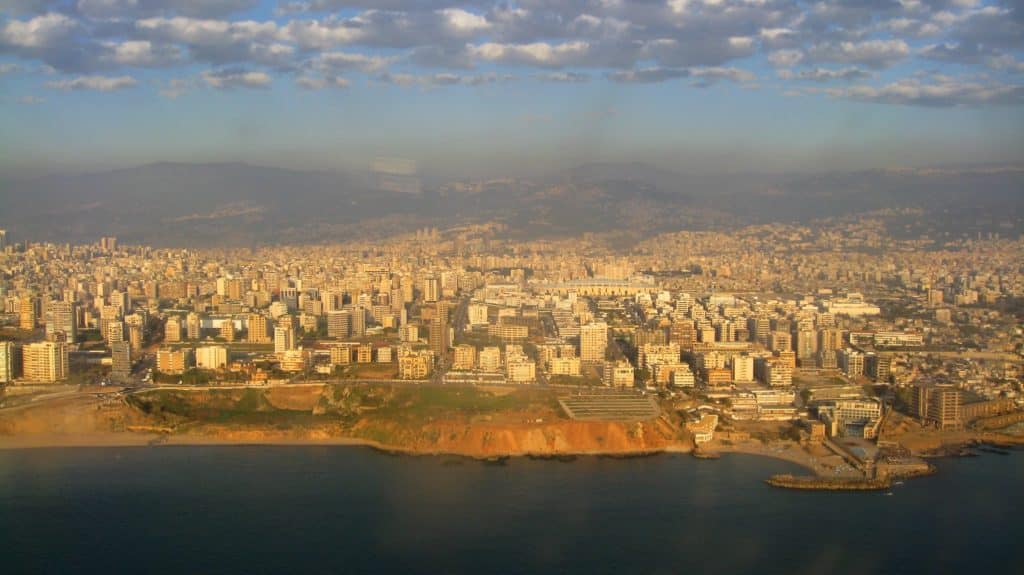The war between Russia and Ukraine has left Europe scrambling for oil. Meanwhile, people across North Africa and the Middle East are also fighting for their daily bread. The repercussions of the conflict are multifold and millions of people are going hungry. In this article, we take a look at the ongoing food crisis in Lebanon, from what caused it to the ways in which countries and NGOs are helping the struggling population.
__
What’s Going On?
Russia and Ukraine are the biggest exporters of wheat globally and for this reason, they are often referred to as the breadbaskets of the world. Since the conflict began nearly nine months ago, Ukraine’s ports have been under the control of Russia and the wheat silos in those ports are at maximum capacity.
Like many of its neighbouring countries, Lebanon, too, relies on Ukrainian and Russian exports of wheat, which are 66% and 12% respectively. With more than 4.5 million tonnes of wheat stuck in Ukraine’s ports, the Middle Eastern country, which is highly dependent on imports, is facing a major food crisis, which has been categorised as one of the worst crises since the middle of the 19th century. Lebanon’s neoliberal economic policies are further exacerbating the situation. Rising food insecurity is affecting nearly 2.2 million vulnerable Lebanese as well as 86,000 migrants, 200,000 Palestinian refugees, and 1.5 million Syrian refugees.
You might also like: The Growing Importance of Food and Water Security Amid the Ukraine-Russia War
What’s Behind the Food Crisis in Lebanon?
The food crisis in Lebanon is not just the result of the war in Ukraine. The country’s economy had been facing several challenges for decades. The condition of ports in Beirut, Lebanon’s capital, has been weak since the devastating explosion of 2020, which caused immense destruction to the city’s buildings and infrastructure and resulted in the displacement of thousands of people. At the time of the explosion, Lebanon, like the rest of the world, was dealing with the Covid19 pandemic, which killed more than 10,000 people. The government declared a state of emergency and announced multiple lockdowns that further exacerbated the already weak economy. By the time the country started to recover from the pandemic and the explosion, the war in Ukraine brought it right back to its knees.
Food shortages have been a reality in Lebanon since the Beirut port explosions. With the destruction of the port, through which 70% of Lebanon’s entire trade transits, housed grain silos were reduced to rubble. This shortage of grain is seriously affecting the country, which is now dealing with an inflation rate of 122%, one of the highest in the world. With the Lebanese pound devaluing, the economy contracting, and unemployment rising, the food crisis is worsening day by day.
How Is the Food Crisis Affecting the Population?
The most vulnerable and economically weaker sections of the population are unable to afford food without borrowing money and accumulating more debt and are often forced to reduce the number of meals they consume. The cost of essential food items like oil, sugar, and most importantly bread, is rising and has already increased to more than 20% since the start of the war.
As a result of this, people are not able to consume basic commodities, they are eating less and are even skipping meals in a bid to reduce expenses. Food products like meat, dairy, fruits, and vegetables are now considered luxury goods and are thus consumed very rarely and only if the already limited budget allows. Chicken and fish prices are 15 times more than what they were in 2020, making vegetarianism more of a necessity than a choice.
This is affecting Syrian refugees living in the country – 90% of which are estimated to live in extreme poverty – worse than Lebanese citizens themselves. They are also being accused of stealing, flour hoarding, and smuggling, and a preference treatment is being given to Lebanese nationals at bakeries and grocery stores.
The food shortage has even resulted in people selling their jewellery or other prized goods to be able to buy essential food items. The economic crisis is so bad that it is no longer affecting just the economically weaker but also wealthier segments of the population. Residents are waiting in long queues in the hot summer to get meagre amounts of bread that are being subsidised by the government, while others are prepared to spend an excessive amount of money to buy small loaves of bread.

Cost of bread in Lebanon
Despite more wheat arriving in the country since Ukraine’s ports reopened in August, the unfair distribution of it among the population has benefited just a small percentage of Lebanese. Once again, Syrian refugees and weaker segments of the Lebanese population were left behind.
Adding to Lebanon’s problems is the recent cholera outbreak that is spreading fast across the country. The outbreak emerged as a result of contaminated tap water, which most people are forced to drink because they cannot afford to buy bottled water.
How Are We Helping Mitigate the Food Crisis in Lebanon?
The government is seeking assistance from the World Bank and the International Monetary Fund (IMF) to uplift the economy. Third countries are also doing their part. Austria, for example, pledged to donate €2.5 million (US$2.6 million) to the World Food Programme (WFP) and will also give €500,000 (US$590,000) to local non-governmental groups working on the ground.
Lebanon has also been receiving ongoing humanitarian assistance from the United States Agency for International Development (USAID) and international organisations such as the World Food Programme (WFP). Since dairy is an important source of nutrition in Lebanon, USAID is also committed to providing small dairy producers with tools, veterinary services, and fodder to maintain high-quality milk production. In order to increase production and decrease reliance on imports, agro-processors will also receive funds, technical help, and training. This will encourage the growth of the processed food industry and increase access to reasonably priced local food products.
The Real Way Out
Despite aid initiatives and help from international organisations, things will not really change until Lebanon revolutionise its economic foundations and invests in a more robust agro-industry.
Countries such as Sri Lanka and Haiti are also experiencing similar problems.
Sri Lanka is facing its worst economic crisis since its 1948 declaration of independence. The crisis has resulted in political unrest and has significantly affected the lives of its citizens. With the country facing hyperinflation, there is also massive food insecurity affecting an estimated 6.3 million people. But like in the example of Lebanon, the situation is expected to worsen because of the lack of reforms to improve the economy and agricultural sector and reduce the country’s dependency on foreign imports.
Due to its geographical vulnerability, increasing population, and limited availability of resources, Haiti is also experiencing food insecurity, which is estimated to affect about 4.5 million people. Growing food shortages and rising inflations have only recently exacerbated the situation. Like Lebanon and Sri Lanka, the country depends on imports and humanitarian assistance from several countries and NGOs.
The aforementioned crises should be a cautionary tale for countries facing similar situations. Interdependence of states has proved to be a good thing in our liberal and globalised world but it should never come at the cost of the lives and well-being of the people.
You might also like: Why We Should Care About Global Food Security


















